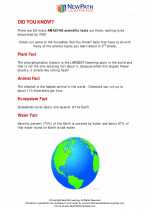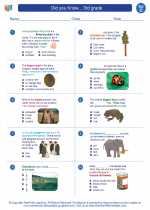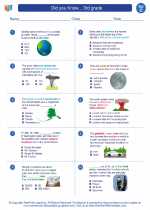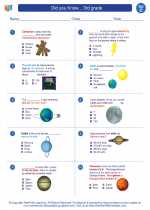Mathematics: Exploring the World of Numbers and Patterns
Welcome to the exciting world of mathematics! Mathematics is a fundamental subject that explores the world of numbers, shapes, patterns, and relationships. It is a powerful tool that helps us understand and solve problems in various fields such as science, engineering, economics, and everyday life.
Key Concepts in Mathematics
Here are some key concepts to help you understand the basics of mathematics:
- Numbers: Mathematics deals with various types of numbers, including whole numbers, fractions, decimals, and negative numbers.
- Arithmetic: This branch of mathematics focuses on basic operations such as addition, subtraction, multiplication, and division.
- Geometry: Geometry deals with shapes, sizes, and properties of figures and spaces.
- Algebra: Algebra involves the study of mathematical symbols and the rules for manipulating these symbols to solve equations and represent relationships between quantities.
- Statistics: Statistics is the study of collecting, organizing, analyzing, and interpreting data.
- Probability: Probability deals with the likelihood of events and helps us make predictions based on uncertain outcomes.
Study Guide for Mathematics
Here are some tips for studying mathematics effectively:
- Practice Regularly: Mathematics is a subject that requires regular practice. Try to solve math problems daily to reinforce your understanding of different concepts.
- Understand the Concepts: Instead of memorizing procedures, focus on understanding the underlying concepts of mathematics. This will help you apply your knowledge to solve a variety of problems.
- Seek Help When Needed: If you encounter difficulties with a particular topic, don't hesitate to seek help from your teacher, tutor, or classmates.
- Use Resources Wisely: Utilize textbooks, online resources, and educational apps to explore different aspects of mathematics and enhance your learning experience.
- Apply Mathematics in Real Life: Look for opportunities to apply mathematical concepts in everyday situations. For example, you can use math to calculate expenses, measure ingredients for recipes, or analyze sports statistics.
By following these tips and staying curious about the world of numbers and patterns, you can develop a strong foundation in mathematics and build essential problem-solving skills.
.◂Science Worksheets and Study Guides Third Grade. Did you Know... 3rd grade
Study Guide Did you Know... 3rd grade
Did you Know... 3rd grade  Worksheet/Answer key
Worksheet/Answer key Did you Know... 3rd grade
Did you Know... 3rd grade  Worksheet/Answer key
Worksheet/Answer key Did you Know... 3rd grade
Did you Know... 3rd grade  Worksheet/Answer key
Worksheet/Answer key Did you Know... 3rd grade
Did you Know... 3rd grade 

 Worksheet/Answer key
Worksheet/Answer key
 Worksheet/Answer key
Worksheet/Answer key
 Worksheet/Answer key
Worksheet/Answer key

The resources above cover the following skills:
LIFE SCIENCE
Unity and Diversity
Construct an argument from evidence to explain the likelihood of an organism’s ability to survive when compared to the resources in a certain habitat (e.g., freshwater organisms survive well, less well, or not at all in saltwater; desert organisms survive well, less well, or not at all in woodlands).
Create models that illustrate how organisms and their habitats make up a system in which the parts depend on each other.